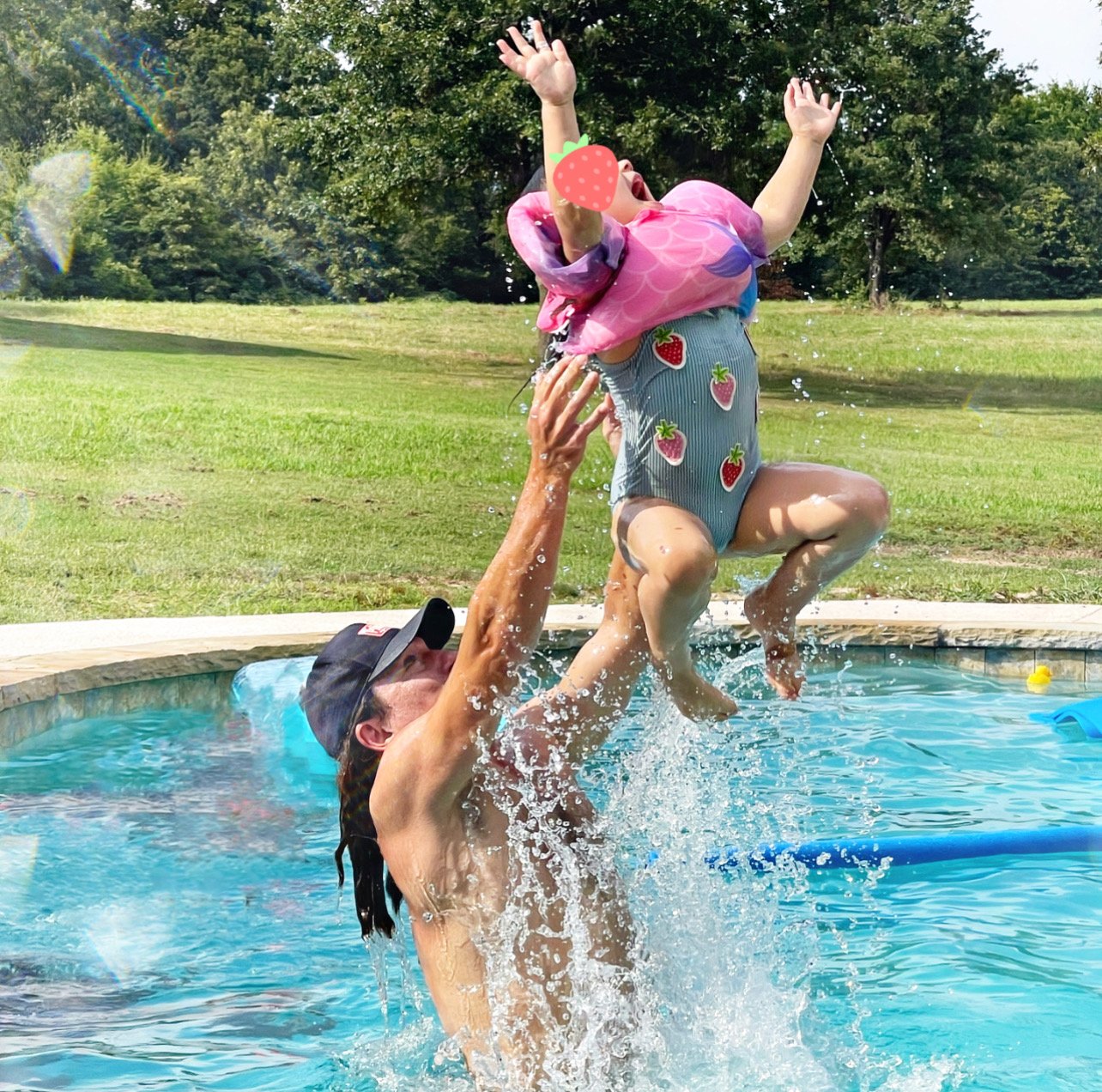Kids are resilient
“Kids are resilient.”
I don’t know how many times people have reminded me of this over the last few years. Both in relation to Jackson having a sick and dying sister and as it pertains to Strawbaby and her tumultuous first few years of life. Until recently, I just sort of accepted this statement as fact. On the surface it appears to be true – as evidenced by my children persevering and being relatively happy little humans. But lately, that statement hasn’t sat as well with me and this past weekend I finally figured out why.
On Wednesday, hours before Miguel’s matinee, we landed back in Newark after spending the holiday weekend in Texas visiting family. One of those days we reunited Strawbaby with her siblings. I haven’t shared anything about how Strawbaby came to us because it is not my story to tell. What I will say now is that her mother is family, and her siblings are being adopted by other family members. We are doing everything we can to keep the children in the family and to maintain their relationships with each other. Prior to this visit, we had seen a couple of them and had been in communication with all of them (or at least their adoptive parents), but this was the first time that we had been able to get everyone together.
Watching Strawbaby and her siblings swim in their Nana’s pool with their cousins, tias and tios, and all their new mommies and daddies I was struck by how regular this little backyard pool hang seemed. The emotional undercurrent was far from normal though and certainly felt by every adult there, meanwhile the kids just seemed happy to play together.
“Kids are resilient.”
But what is it exactly that makes children so resilient, or at least more resilient than adults? I’m no psychologist but I have to imagine that children tend to live more in the present. I don’t think I’ve ever met a six-year-old with a five-year plan. They may have ideas about what they want to be when they grow up, but the future is abstract, so immediate satisfaction and security in the present is the focus.
Then there is the not so small issue of control, as in children have very little. They don’t choose who they are seeing that day, where they are going or what they are having for dinner. Tantrums aside, children are forced to accept a lack of autonomy. Perhaps this necessary surrender makes them more resilient? They can’t control much in their lives, so they become used to accepting their circumstances. In this context, resilience is really just a form of acceptance.
Or maybe children are more resilient because it is easier for them to repress and compartmentalize emotions. Especially when you don’t entirely understand what is happening.
Whether kids are resilient because they are focused in the present, or they accept that they have little control over their lives, or because they compartmentalize what they don’t understand – it sure doesn’t feel healthy in the long run. Watching all the children jump, splash and laugh that day I came to the conclusion that, “kids are resilient” is a way to alleviate adults of the pressing concerns affecting their children.
Now, I’m not saying that we should have led some sort of group therapy session instead of letting the kids play in the pool. Letting them just be together was therapeutic. Also, it is not like anyone there was saying, “See! Even though they had a rough start to life they are playing and having fun now! Man, kids sure are resilient!”. We are all too deep in the trauma trenches to be disillusioned by one good day.
I guess my point is that, yes, children often persevere, and yes, they appear to be resilient, BUT, in children, that resilience may really be the equivalent of kicking a wasps nest down a dusty road until the child is an adult and has the intellectual capacity and emotional where withal to properly fumigate that nest. Those resilient children are going to need significant support to avoid being stung repeatedly - to understand what happened to them, how it has shaped them and how they will now choose to move forward.
Because kids may be resilient, but like it or not they don’t stay kids forever.
Image description: Strawbaby being thrown in the air by Miguel in a pool. Strawbaby is wearing a blue and white striped suit with strawberry patches and a pink floatie. Her arms are stretched in the air and she is yelling with joy.



